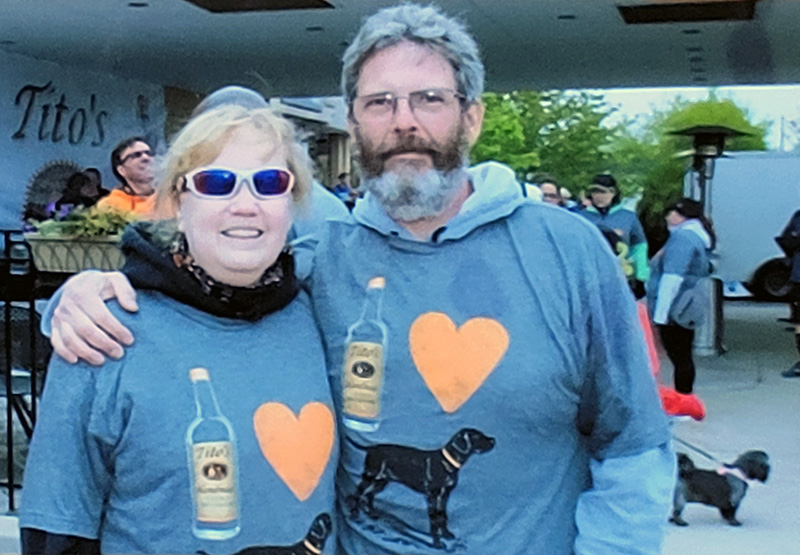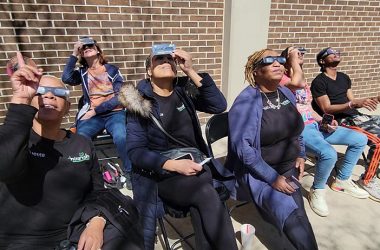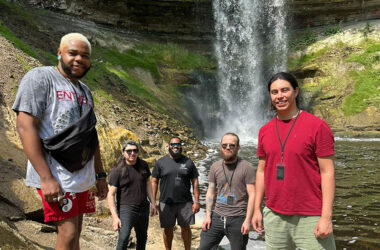Note: This story is the third in a series from our annual Health & Wellness special section, first published in the April 1 print edition.
For 25 years, Al Fidanza was a stationary engineer at a high rise building in Chicago.
Then his boss started noticing he’d fail to complete some tasks. At home, his wife, June, also realized he was becoming forgetful.
“People would tell me they called, and Al would say he’d pass on the message, but he never did,” she said. There were other things that he didn’t follow through on. “It wasn’t like major things at all,” but she convinced him to see a doctor.

Al went through a battery of tests to determine what his problem was. When he got a diagnosis of cognitive impairment dementia in 2016, he was just 53. His world changed. He went on a leave of absence from his job, but eventually was forced to retire. He had to give up driving.
June was still working. She didn’t have concerns about leaving Al alone, but eventually she realized she needed to be there for him. She promised him she’d take care of him at home. Her mother had done the same thing for her father who died of Alzheimer’s disease.
As time passed, doctors changed Al’s diagnosis to Alzheimer’s disease. He lived for seven years with the debilitating disease. He was 60 when he died in January 2023.
Al had no physical ailments, and June said: “If you met him on the street by just looking at him you’d have thought nothing was wrong with him.” But she saw the very little things, like him helping her unload the dishwasher but nothing went in its proper place.
Doctors recommended June plan a daily routine to keep Al busy and his mind active. She kept to a schedule of meals and activities. The couple followed this planned routine and things were going along until the pandemic hit and the world went into quarantine.
Unable to go places or meet others, they’d play bean bags in their yard in Homewood, and go for walks and wave to neighbors in their houses. Al decided he’d ride his bike, and he’d ride up and down two blocks and turn around and come home, until one day he didn’t.
“He was gone for 5 hours. We had police out, we had the dogs out. Everyone in Homewood was searching for him. They found him 16 miles away in Crete on his bike,” June remembers. “That one incident scared him so bad that he stuck to me like glue. It was terrifying, but he became totally attached to me at the hip.”
As time went on, Al’s condition worsened. He would try and leave the house, so the family installed hooks high up on the doors. An alarm system alerted June when Al tried to open a window or door.
“It was enough of a deterrent for him. You just have to find all these little things. You don’t want to upset the person who has the disease. You have to find ways to trick and accommodate. They can’t help what they’re doing,” she stressed.
By July 2022, he was developing anger issues. Doctors put him on medicine which improved his actions, but the side affect was Parkinson’s syndrome. June was alarmed by that, so the doctor took Al off the medication, and “within 24 hours all his symptoms were gone but the anger issues were worse than ever,” she said. He was again prescribed medication but at a lower dose.
Al ended up in the hospital Dec. 23, then to a neurological facility in Crown Point and finally in a memory care unit at Charter Senior Living in Hazel Crest.
When staff realized Al was near the end of his life, June called all his friends to come say their farewells. He died in his sleep.
Looking back, June said caring for her husband was “the hardest thing I’ve ever done in my life, but I wouldn’t change a thing.
“Each family is individualized. Everybody has so much going on in their lives. Not everybody is a care giver. Not everybody’s personality is designed to be a care giver.
“Don’t feel guilty about how you handle it. If you can keep your family member at home, do that. If you can’t, there’s great memory care facilities out there. Reach out and get help.”
She recommends contacting Catholic Charities. The agency can offer assistance through a variety of programs and classes. The Alzheimer’s Association also has resources.




